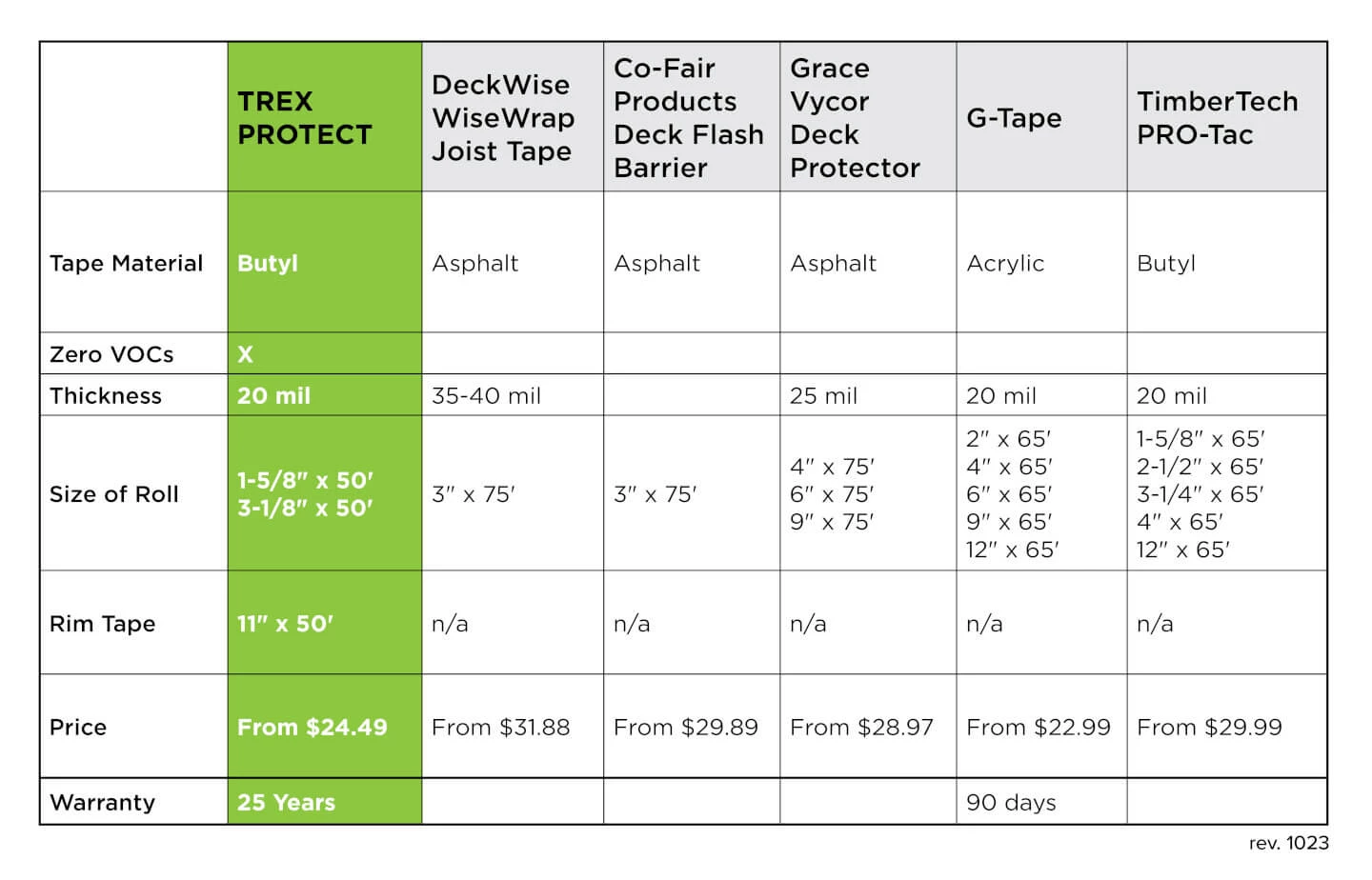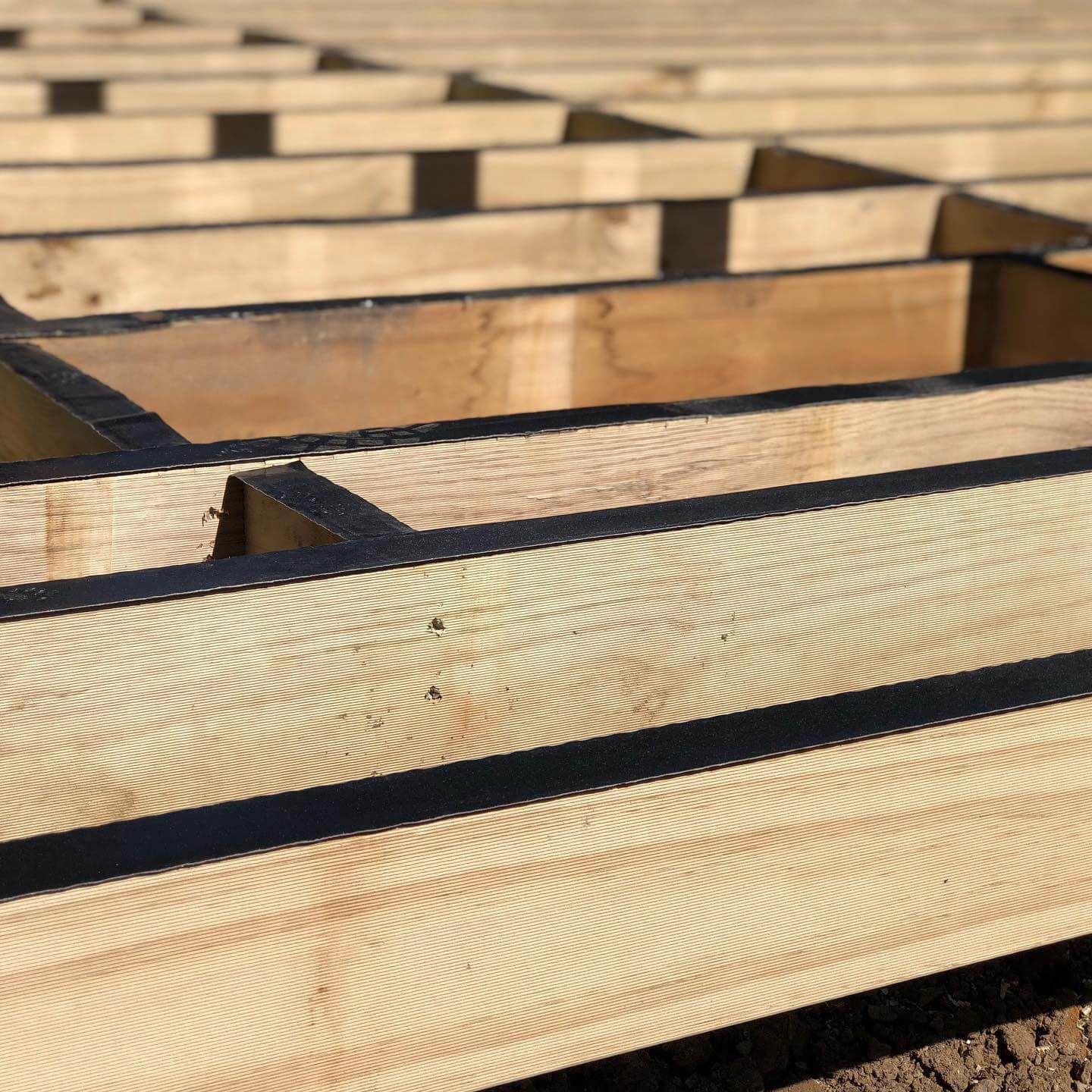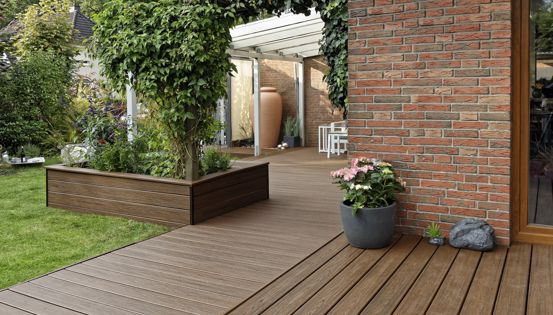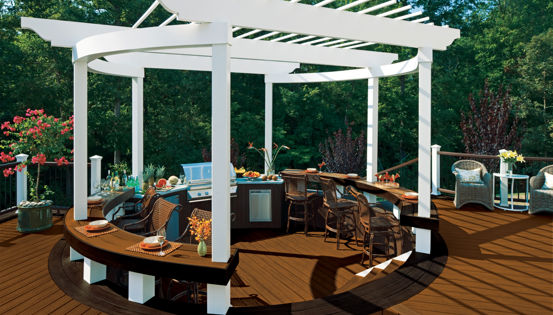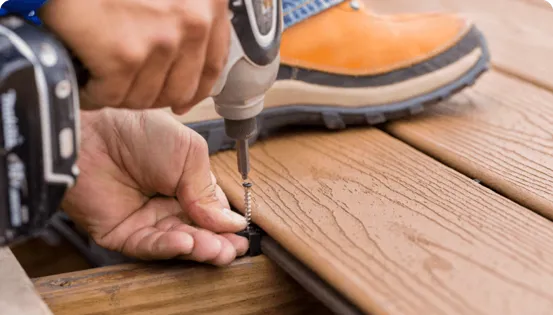Joist tape is also known as flashing tape. Flashing tape for decking is a strong and waterproof tape that will protect your deck's substructure from water. It's certainly an excellent investment, especially if homeowners want a deck that will last for a long time. Joist tape is a useful tool to add to your deck-building process, so it's definitely worthwhile.
What is Deck Joist Tape?
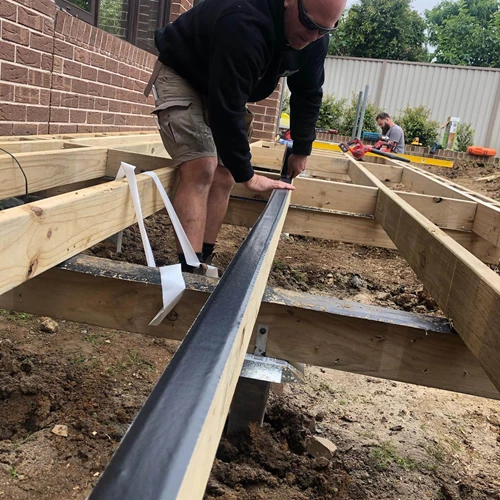
Deck joist tape is a strong adhesion tape that will protect your deck's joists from wet conditions. Wet joists will ultimately lead to mold and, eventually, rot. Joist tape prevents water from getting under your deck and into the frame.
Joist tape, or flashing tape, is extremely beneficial for your deck.
- Joist tape will increase the length of life of your deck
- It will shield your joists, beams, and rim joists from moisture penetration
- It will help deck screws and fasteners hold longer and stronger
- Joist tape will cut down your deck repair expenses
Types of Joist Tape
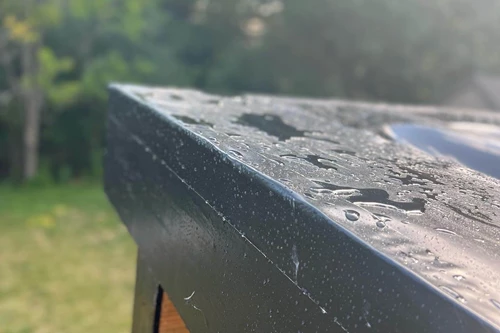
There are several types of joist tape available. Some of these types include butyl and asphalt. They are all weather resistant and form a tight barrier to prevent moisture from penetrating the deck frame. We will look at these two kinds of tape and their advantages.
- Asphalt or bitumen tape is an easy-to-use, durable joist tape made from asphalt and petroleum. Homeowners often use this kind of tape to protect their joists. It has multiple uses, including the protection of wood from moisture.
- Butyl tape is rubberized, waterproof tape commonly used in construction to seal the seams between boards. This tape is flexible, durable, water-resistant, adheres well to wet surfaces, and is self-sticking. Butyl tape is highly adhesive and thin enough to fit around deck hardware and fasteners. A butyl tape, such as Trex Protect, is long-lasting and has a 25-year warranty. It's a breeze to install, as well.
How to Use Joist Tape
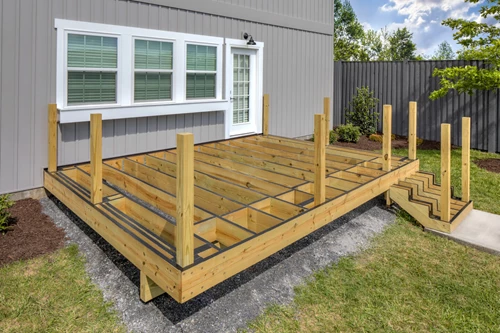
Using flashing tape for deck joists is a smart idea. Deck flashing tape gives longevity to your deck and will prevent moisture from seeping into the wood and damaging the deck's substructure.
The joists run directly underneath your deck's surface boards, and your beams, the other primary source of support, are kept dry and protected from rain and other precipitation. Deck flashing tape is also used along the rim joists to protect the outer boards that enclose your deck and on steps, stair stringers, and the ledger board. Another benefit of joist tape is that it seals the deck screws and any metal hardware underneath from moisture so they last longer and stay stronger.
The application of joist flashing is straightforward.
- Clean the joist surface, making sure it is dry and free of debris.
- Remove the joist tape backing while applying directly to the surface. Run your hand over the tape and firmly press it onto the joists and beams.
- After covering all horizontal and vertical surfaces, cut the tape to length with a utility knife.
Another advantage of butyl joist tape is the ability to install it in a wide range of temperatures. Since it is a rubberized tape and will ooze, it is best to install it when temperatures are not too hot. A trick to making it evenly lay on the surface is using your hand to firmly press the tape to the wood. Smooth as you go, and when you reach the edge of the joists, cut small diagonal slits with a utility knife so that the ends can fold over.
Why do You Need Joist Tape? Is Joist Tape Worth It?
Using joist tape is absolutely worth it! Joist tape is an easy step that will shield the underside of your deck and keep moisture out for years to come. It's applied when constructing your new deck.
Using flashing tape for decking is an apt choice to preserve your deck's underside and keep the deck's structure intact and mold-free for years. It's a small investment, usually under $100, and will give you peace of mind. Use the Trex Protect materials estimator to get an estimate on the materials you need.
When you add a deck to your home, you're not just adding an outdoor living space. You're making an investment. A 400 sq foot deck can cost between $12,000 and $24,000 for composite decking and between $10,000 to $17,000 for a wood deck.
According to research conducted with builders, over 90 percent of a deck substructure starts to split and rot at around 8 to 10 years. The boards supported by that substructure are usually warranted to last about 50 years. For minimal extra costs, you can safely support your deck and its substructure for the deck's life by using joist tape.
What to Shop for in Joist Tape
Here are some things to consider when shopping for the right joist tape to protect your investment.
- Material - Asphalt and butyl are the two main types of flashing joist tape for decking. Look for a butyl tape, like Trex Protect, because it has less high-temperature oozing, endures less stain, is stickier, and can be applied in a wide range of temperatures. Butyl flashing tape also creates a tighter seal around deck screws to prevent moisture from seeping in.
- Ease of installation - Butyl tape requires little trimming because it lies directly on the boards, requiring minimal cuts and having little overlap. This makes it simple and quick to install.
- Thickness - The joist tape you select should be just about a perfect fit on the deck boards. Tape that is too thick is difficult to install because it will require trimming. Tape that is too thin may not be as durable over time.
- Price - You want a joist tape that is affordable, but you are also shopping for high quality. Remember that this is like your insurance policy on your deck substructure, so while you don't want to bust your budget on joist tape, you don't want to skimp on quality to get a slightly lower price.
- Reputation - You could choose from several brands of butyl joist tape. The chart below gives you a comparison. Trex Protect is the leading joist and beam tape on the market and it comes with a 25-year warranty from Trex.
